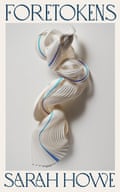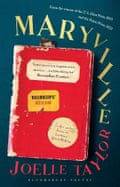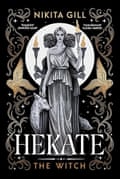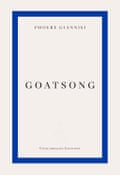 |
| Tom Paulin |
The best recent poetry – review roundup
Namanlagh by Tom Paulin; Foretokens by Sarah Howe; Maryville by Joelle Taylor; Hekate by Nikita Gill; Goatsong by Phoebe Giannisi
Namanlagh by Tom Paulin (Faber, £12.99)
It has been more than a decade – “long empty days / with the blank page” – since Paulin’s Love’s Bonfire. His 10th collection is informed by depression and the recovery from it: “if only some idea / could find its way / through enemy territory / then I’d at last begin / to look up at the sky”. His lyrics still meander down the page, but linguistic fireworks have been replaced by language that is straightforward, unadorned and more affecting for it. This also gives his reflections on the recent shifts in Northern Irish history and politics more bite. But it’s in its more private moments that the book really shines: “Heed my cadences then and live only for now. / Don’t ever bother about tomorrow. / Just pluck, today, life’s full-blooded roses”.

Foretokens by Sarah Howe (Chatto & Windus, £12.99)
Ten years since winning the TS Eliot prize with her debut Loop of Jade, Howe’s second collection is a reaffirmation of the keen, probing intelligence and ability to layer telling detail that underpins her poetry. Taking on the biggest of subjects – genetics, time’s relativity, becoming a parent – as well as re-examining her mother’s occluded history in Hong Kong, there is now an anger in Howe’s tonal range, which brings a pleasing sharpness to her investigations: “child of a hoarder / I am not immune / to this mania this malaise / this inherited dream / of an archive / so complete nothing / could ever hurt again”. Foretokens is a quite brilliant return.

Maryville by Joelle Taylor (Bloomsbury, £14.99)
Taylor’s latest takes the four butch lesbian characters we met in the TS Eliot-winning C+NTO & Othered Poems, and expands into a sweeping, 50-year history of lesbian culture and LGBTQ+ rights. Maryville is framed as a television series because, as Taylor says, “I want you to see us”. The device works as both the poems and screen directions surrounding them are stuffed with urgent and memorable language: “inside / women have left their breasts at home / & brought someone else’s teeth / femmes wear their hair / like a borough wears a riot”. What lingers is the tenderness Taylor has for her protagonists; she knows that liberation never comes without a cost.

Hekate by Nikita Gill (Simon & Schuster, £18.99)
The first in a trilogy, Gill’s latest verse novel is a retelling of the life of Hekate, the Greek goddess of plants, witchcraft and more. We follow her from her youth, as she discovers why she’s ended up in the underworld, and what her godly powers might be. Making use of fast-flowing tercets and prose poems, it’s a propulsive read, though at times the needs of exposition contort the poetry into flatness. However, Gill is skilled enough to slow the action and allow moments of insight to surface. In Girlhood, Hekate pauses and ponders: “the shifting sands of time took my father from my features. Is that all ageing is? Leaving things you knew and once loved behind to become something brand new?”

Goatsong by Phoebe Giannisi, translated by Brian Sneeden (Fitzcarraldo, £14.99)
Also wrestling with the Greek gods and what their myths might mean for today is Phoebe Giannisi. Goatsong is a compilation of three recent books, all united by a style that, as perhaps befits a professor of architecture, is rigorously intellectual. Yet a focus on the physical grounds the poems: “I open my mouth to speak / but my teeth clench / you a seashell / a hidden word.” Giannisi’s work does not give up its charms easily, but is worth persisting with. Its oddity and opacity put me in mind of Auden’s The Orators. In its own way, Goatsong is saying something important: “I say take me / in your embrace / in your violence / and gently / let me go”.
